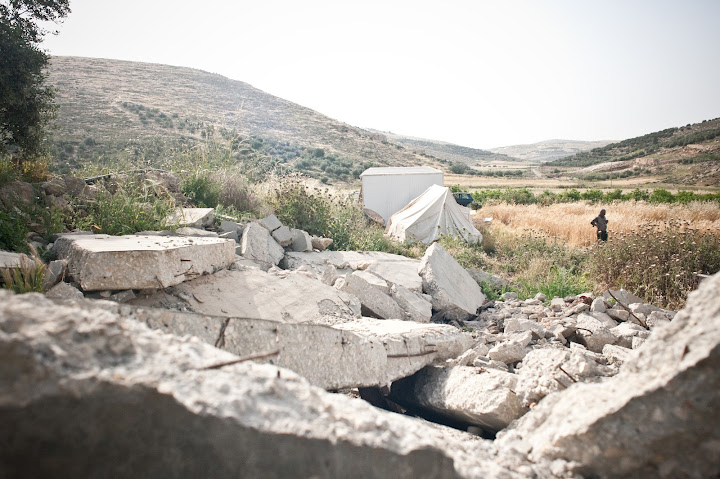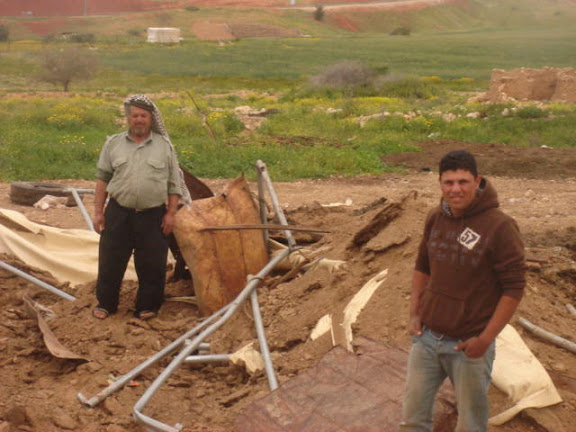Tag: House Demolition
-
Idhna: Family faces a third home demolition by Israel
by Sunny 8 May 2012 | International Solidarity Movement, West Bank On Monday, May 7 in the southern West Bank village of Idhna, Mohamed Temezi was busy working on his caravan home. Israeli Occupation Forces (IOF) arrived unexpectedly and subjected him and his wife Faizah Temezi to a 3 hour ordeal in which they were…
-
Demolitions: Israel’s path of destruction through the Jordan Valley
by Andreas 27 March 2012 | International Solidarity Movement, West Bank Families and their livestock are left without shelter as Israeli Occupation Forces soldiers and bulldozers leave a path of destruction El Hemmi, al-Farisiya and Khirbet Homse in the Jordan Valley On the 26th of March several houses and animal barricades were demolished in the…


